He felt the proximity of danger, his sense of a scout said that a war might begin. Alexandros Simeophoridis proceeded from the facts, they were clear and precise, but no one believed him.
As head of the Hellenic Central Intelligence Service (KYP) contingent in Kyrenia, Cyprus, he intercepted and decoded Turkish conversations and monitored the movement of military units in Alexandretta and Mersin. For at least three months in 1974, he observed unusual and increasing activity. He recorded intensive landing exercises, cancellation of vacations, requests for military supplies and massive shipments of ammunition in intelligence signals, and informed his superiors of the possibility of a Turkish invasion. His warnings were timely, but they were not heeded.
“I sent so much information! And what happened to her? My signals are up in the air! If it had been used, we might have had a different result,” the retired colonel still asks this question, even today, at the age of 87. “We were so well informed that nothing could happen without our knowledge. And it was all in vain. The leadership of the country did not seem to notice this. And then “unexpectedly” came the Turks. I felt betrayed,” he says.
These days Simeophoridis is in Rachesa, in the region of Phthiotis, where he usually spends his summers. A local resident, also a retired officer, was instructed to wait for us at the church of St. Charalambos to lead us through the narrow streets to the doorstep of his neighbor. “You’re in for a surprise! It’s an incredible story,” he tells us before we brush him off. A short man with a quick gait, Simeophoridis invites us into his living room. His story has not changed, and he tells it without pause, remembering all the dates and names of military units. Despite the fact that almost half a century has passed since the Turkish invasion, every year, when July 20 approaches, that turbulent period returns. “In my mind I returned to Cyprus,” he says.
Simeophoridis was born in Pentavriso in Kastoria and graduated from the Military Academy. After passing his exams in 1960, he studied Turkish at the Armed Forces Foreign Language School. In 1963, the KYP applied to the General Staff of the Ground Forces for three unmarried Turkic-speaking officers to join its ranks. He was among them, and in May 1964 he was sent to the Didymotikhon border crossing in northeastern Greece. Four years later he was sent to Kyrenia in Cyprus.
There he monitored the movements of, among others, the Turkish 6th Army Corps in Adana and the 39th Division based in Alexandretta. Every September, this division conducted an amphibious landing exercise from Mersin to Antioch, in which one of its three regiments took part in turn. However, in April 1974, all three regiments conducted successive amphibious exercises over several days. “It was unusual,” he notes.
There were other worrying signs as well. In June of the same year, all leave permits in the Turkish army were abruptly revoked. Simeophoridis says that the major of the 49th regiment was seen in Alexandretta, tens of kilometers from his post. “The general got wind of it and asked for his head on a platter.” He remembers another Turkish officer who mapped the coast of Pentemily, where the snorkeling was to take place. The head of the KYP fed all this information to his superiors. The recipients of his signals were the General Headquarters of the National Guard, the Greek Forces in Cyprus and the Greek Embassy, and copies of his reports were also sent to the KYP headquarters in Athens. “Our people knew that the Turkish military had been on alert since April,” he says.
After the coup
Events accelerated after the coup July 15, 1974 of the year. Two days later, in Mersin, where 16 landing craft were stationed, an emergency meeting of senior Turkish officers was held. This was followed by “the descent of myriads,” as Simeophoridis describes it. To fill the gaps in the units, it was ordered to recruit 5000 people, which was a rarity in peacetime, and the commander of the engineer battalion was ordered to uproot as many trees as possible on the coast of Mersin in order to prepare the area for the arrival of the troops.
On the other hand, preparations have also begun. Reconnaissance flights were made over Cyprus, and ammunition depots of various calibers were gradually emptied and taken to the coast in requisitioned trucks. Simeophoridis recalls a Turkish signal that said all vehicles must be filled with fuel and soldiers must wear long-sleeved uniforms because they would be crawling. Under normal circumstances, he sent his superiors one or two intelligence reports within 24 hours. However, during that turbulent time, he remembers sending 17 to 18 reports a day. “I received no response, no instructions,” he says. “As if they already knew everything and didn’t need more information.” He followed the course of the Turkish convoy to Cyprus and remained optimistic until the last moment. He thought there would be at least some kind of reaction. “Those of us who were in the contingent were gleefully rubbing our hands. The Turks are in for a surprise, and they will remember this for many years, we told each other,” he recalls.
It was barely dawn on July 20, 1974, when he spotted the Turkish fleet off the coast of Kyrenia. He was struck by the fact that the crew members were on deck, looking relaxed, without special security measures, as if they were going for an inspection after the exercise. On the coast of Pentemily, no organized preventive defensive measures were taken. He would later call the Turkish military operation a “walk” rather than a landing.
Simeophoridis retired in 1985. In 2020, he received an honorary award from Deputy Minister of Defense Alkiviadis Stefanis. [Энри Канай]
Fire
Since the Turkish fleet was in the roadstead opposite Kyrenia, the head of the KYP task force received orders from Athens to get as close as possible to the landing site and inform the operational headquarters in Greece of all developments. He expected the arrival of six Phantom fighters and two submarines, which would need precise coordinates to hit Turkish targets. They never arrived. Unable to immediately contact the headquarters, he attached a coil of wire to the telephone wires, climbed onto a nearby three-story construction site and began to relay details about the vehicles being unloaded by the Erkin landing craft. The wire wasn’t long enough to reach the roof of the building, so he had a colleague downstairs holding a phone.
“I was standing there looking through the binoculars or just with my eyes. It is impossible to describe, no matter how eloquent you are, the spectacle, this atmosphere. There was not a centimeter of land that was not on fire or bombarded. It was hell! When someone is in such an atmosphere, he does not think about the risk of dying. It’s like being drunk,” said Alexandros Simeophoridis, describing the events of that day to the investigative committee in the Greek parliament on the “Cyprus affair” in October 1986.
And when he transmitted the details of the front line to Athens, he was asked to calculate where Erkin’s waterline was both then and before the landing began. The waterline, or, in other words, the loading line, is the maximum allowable displacement of the ship. “I started cursing gods and demons,” says Simeophoridis. It was a technical question that seemed out of place at such a critical moment in the invasion. “What, where did they ask where the waterline was, or where the tanks were?” he says.
Simeophoridis ran into a wall of skepticism at other stages. He says he saw 72 Turkish helicopters flying overhead and the answer from Athens was that he didn’t know how to count and that Turkey didn’t have more than 30 or 35 helicopters.
He remembers how a Turkish tank drove over a soldier and another crushed the car. Any resistance during these hours was rudimentary, “an individual feat.” When Turkish tanks approached, he was forced to flee, but was captured and imprisoned for 17 days.
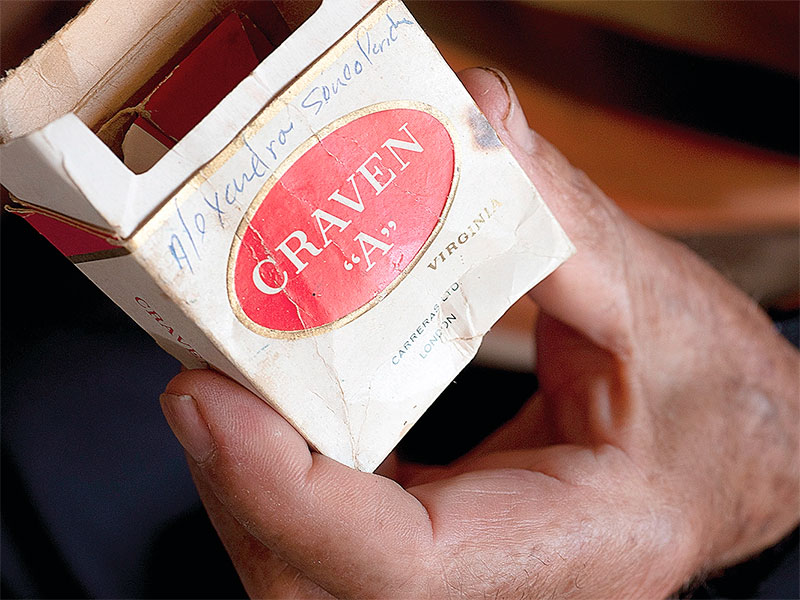
A pack of cigarettes: a souvenir of Simeophoridis from captivity. [Энри Канай]
Captivity
Simeophoridis took action by predicting the possibility of events turning against the defenders and burning documents at local KYP offices, as well as destroying one cipher machine and throwing the other two down a well. He had to eliminate everything that could be used to expose his activities. If he was caught with all this equipment, he was certain that he would be sentenced to death.
He remembers the interrogations, the dark cell and the meager food. A thin slice of bread and three olives was breakfast, a chicken wing cut into three pieces and some pasta was dinner. And that was it. In two weeks he lost 9 kg. He thought he was going to be executed until one day he was unexpectedly released after an exchange of prisoners. “Can you imagine being free after being convinced of the impending execution? How can the body withstand this? To this day, he keeps a crumpled pack of British Craven A cigarettes that he had with him when he was captured and which was returned to him shortly before his release.
He continued to serve in Cyprus until 1978, when he was transferred to the Greek consulate in Istanbul for four years, working as a consular port officer and assistant commercial attaché. He retired in 1985. He believes things could have been different if the vast intelligence he had gathered had been used. “Everything I sent was taken for granted, they didn’t need an analyst to see what was coming next,” he says.
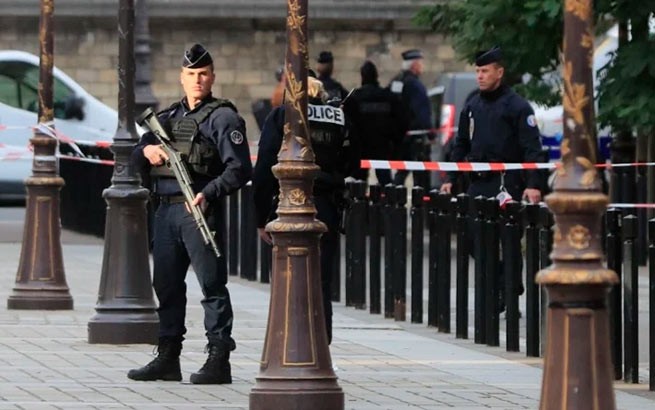
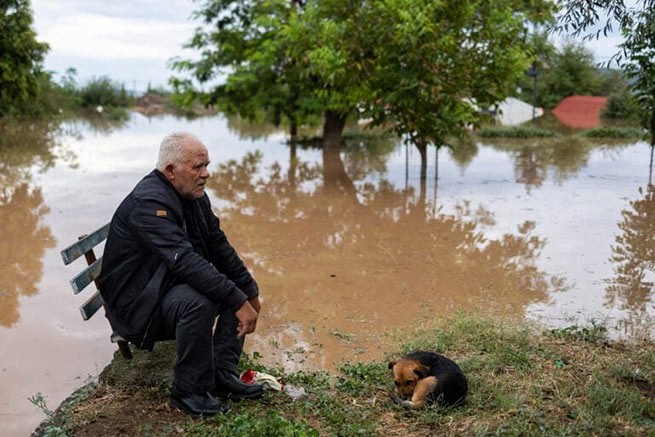
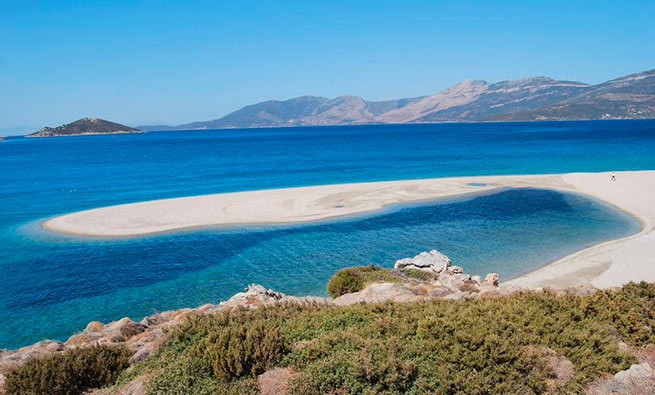
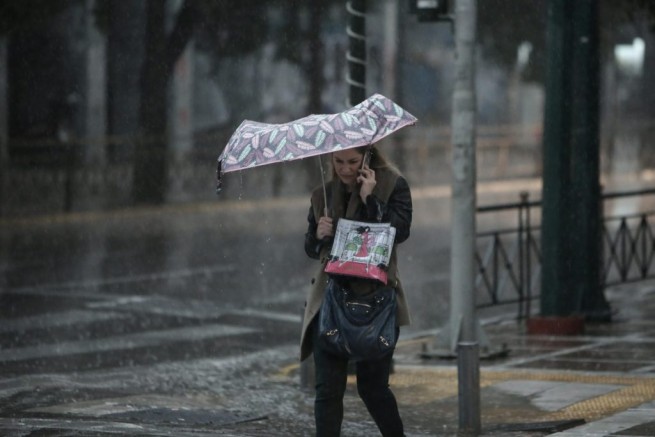
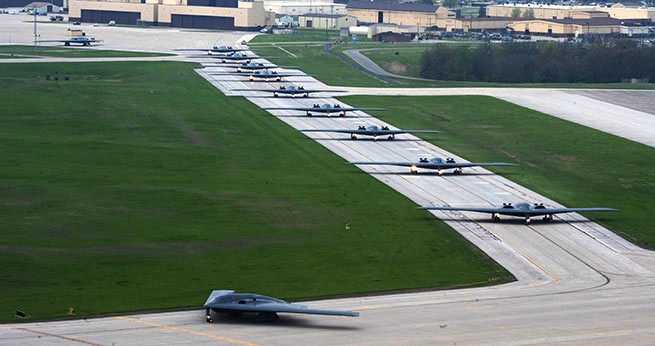
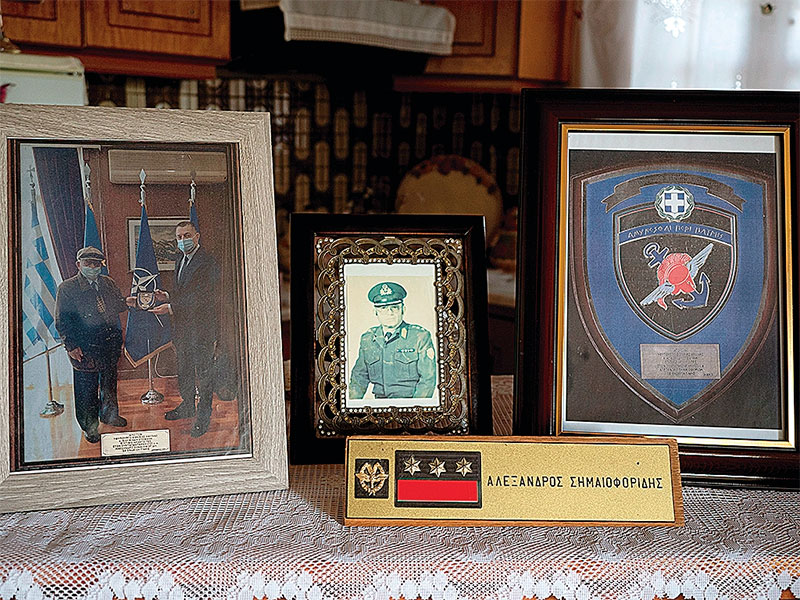

More Stories
The Olympic flame will arrive in Athens on Saturday. Which roads will be blocked?
A participant in the Olympic Truce Road race has died
Metropolitan Seraphim spoke out against celebrating Easter together with Catholics